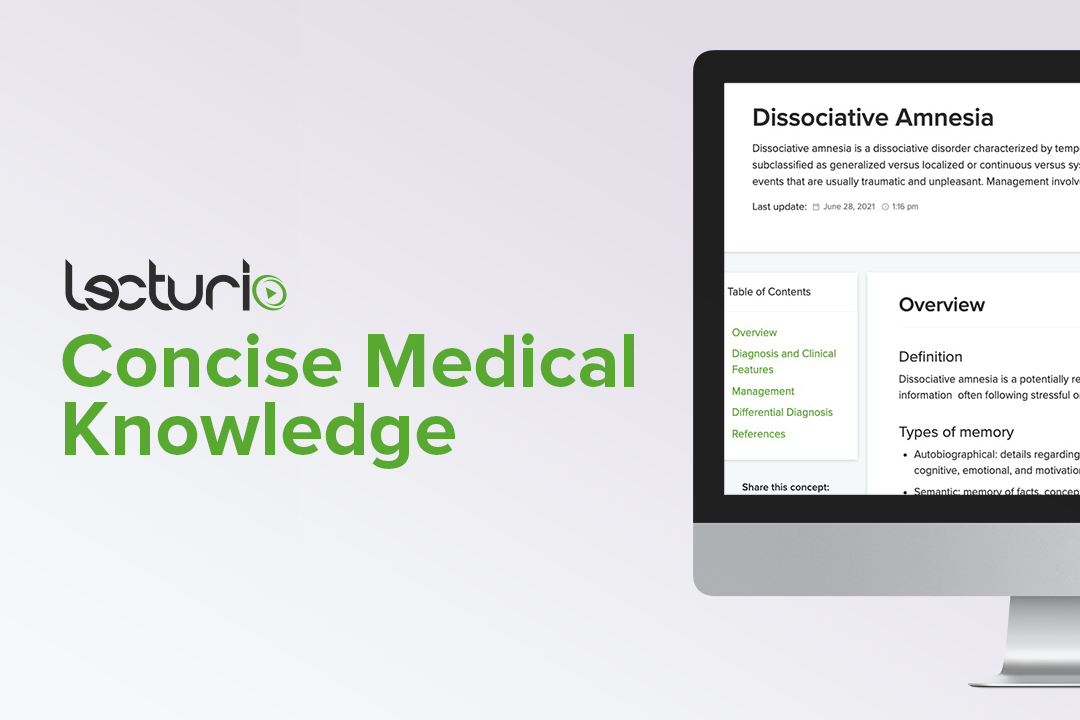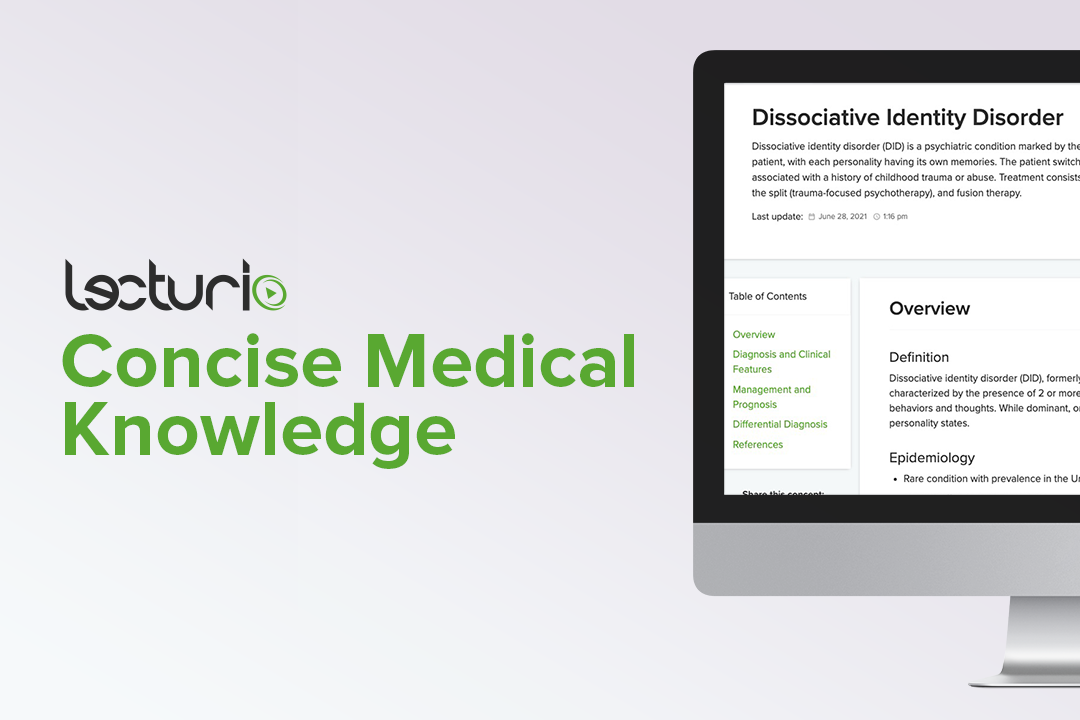Playlist
Show Playlist
Hide Playlist
Dissociative Disorders: Overview
-
Slides DissociationOverview Psychiatry.pdf
-
Download Lecture Overview
00:00 You want to know about dissociative disorders for your exam. So, let’s do an overview here. 00:07 Consider this case example throughout our discussion of dissociative disorders. “A 28-year-old woman was brought to the emergency department for an evaluation after police found her at a local clothing store selecting outfits for customers. The woman said she worked there but the store manager denied this. The woman was not able to tell officers her name, date of birth, or address. They gleaned some information only after looking through her wallet and finding her driver’s license. The woman, who is apparently named Alice, had a home address that was over 300 miles away from the store. The police brought her to the emergency department sensing something was wrong and in the hospital Alice would only talk about her nephew’s 10th birthday party that had been months before.” So what would you do next in the emergency department to assess Alice? Well, first and foremost you want to create a comfortable atmosphere where she feels safe and start to develop that ever important therapeutic alliance. Explore her history further by gathering as much information from her as possible. Consider calling someone she knows for collateral information. Ask for her permission to reach out to someone and ask her for a phone number of a close family member or friend. Also complete a physical exam along with cognitive screening, a mental status exam and also a mini-mental status exam. Rule out any general medical problems that could potentially be happening here. Do this through your physical exam obtaining baseline blood work and consider head imaging as well and do a neurological exam to see if there is any reason why she is not recalling important information about herself. 01:58 Consider getting a neurology consult involved. This can help to tease out exactly whether or not the root cause of what’s happening with her memory disturbance is in fact a brain or neurological problem. So, what is dissociation? This is defined as loss of memory, identity, or one’s sense of self. But what is the self? Well, it’s a unique identity that we all have: one that is comprised of our individual thoughts, behaviors, feelings and memories. There are different types of dissociative disorders. There’s dissociative amnesia, dissociative fugue, dissociative identity disorder and also depersonalization/derealization disorder. Dissociative disorders are primary disorders. Unlike amnestic disorders, important to know they are never due to an underlying general medical condition or substance abuse so you must rule those out before diagnosing someone with a dissociative disorder. The onset of a dissociative episode is usually precipitated by a very stressful life event or significant personal problem. Dissociative disorders are frequently associated with a history of childhood abuse, adult trauma, substance abuse and also major mood disorders. That’s an overview about dissociation and we’re going to review some of the types and a lot more detail. So keep in mind that sense of self and also what it means to dissociate as we move forward.
About the Lecture
The lecture Dissociative Disorders: Overview by Helen Farrell, MD is from the course Dissociative Disorders.
Included Quiz Questions
Which of the following is FALSE regarding dissociation and dissociative disorders?
- Dissociation is defined as the loss of memory with retained identity and sense of self.
- Few dissociative disorders include dissociative amnesia and dissociative fugue.
- Dissociative disorders are primary disorders.
- The onset of a dissociative episode is usually precipitated by a stressful life event or personal problem.
- Unlike amnestic disorders, they are never due to an underlying medical condition or substance abuse.
Which of the following are associated with dissociative disorders? (Select all that apply)
- Childhood abuse
- ADHD
- Acute adult trauma
- Substance abuse
- Major mood disorders
Customer reviews
5,0 of 5 stars
| 5 Stars |
|
5 |
| 4 Stars |
|
0 |
| 3 Stars |
|
0 |
| 2 Stars |
|
0 |
| 1 Star |
|
0 |






